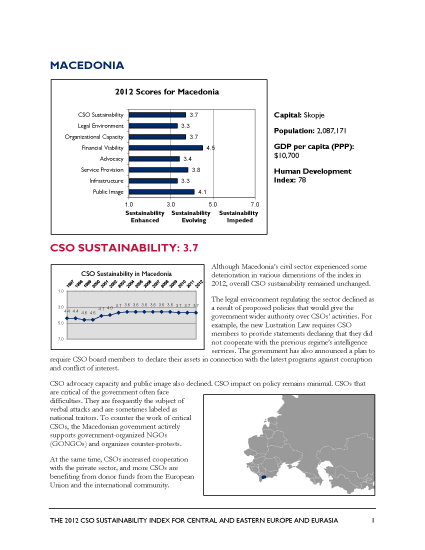CSO SUSTAINABILITY: 3.7
Although Macedonia’s civil sector experienced some deterioration in various dimensions of the index in 2012, overall CSO sustainability remained unchanged.
The legal environment regulating the sector declined as a result of proposed policies that would give the government wider authority over CSOs’ activities. For example, the new Lustration Law requires CSO members to provide statements declaring that they did not cooperate with the previous regime’s intelligence services. The government has also announced a plan to require CSO board members to declare their assets in connection with the latest programs against corruption and conflict of interest.
CSO advocacy capacity and public image also declined. CSO impact on policy remains minimal. CSOs that are critical of the government often face difficulties. They are frequently the subject of verbal attacks and are sometimes labeled as national traitors. To counter the work of critical CSOs, the Macedonian government actively supports government-organized NGOs (GONGOs) and organizes counter-protests.
At the same time, CSOs increased cooperation with the private sector, and more CSOs are benefiting from donor funds from the European Union and the international community.
According to the Central Registry of Macedonia, there were 4,686 organizations registered at the end of 2012. This is less than half the number registered in 2010, before CSOs had to re-register in order to comply with the 2010 Law on Citizens’ Associations and Foundations (NGO Law).








Comment
Make a general inquiry or suggest an improvement.